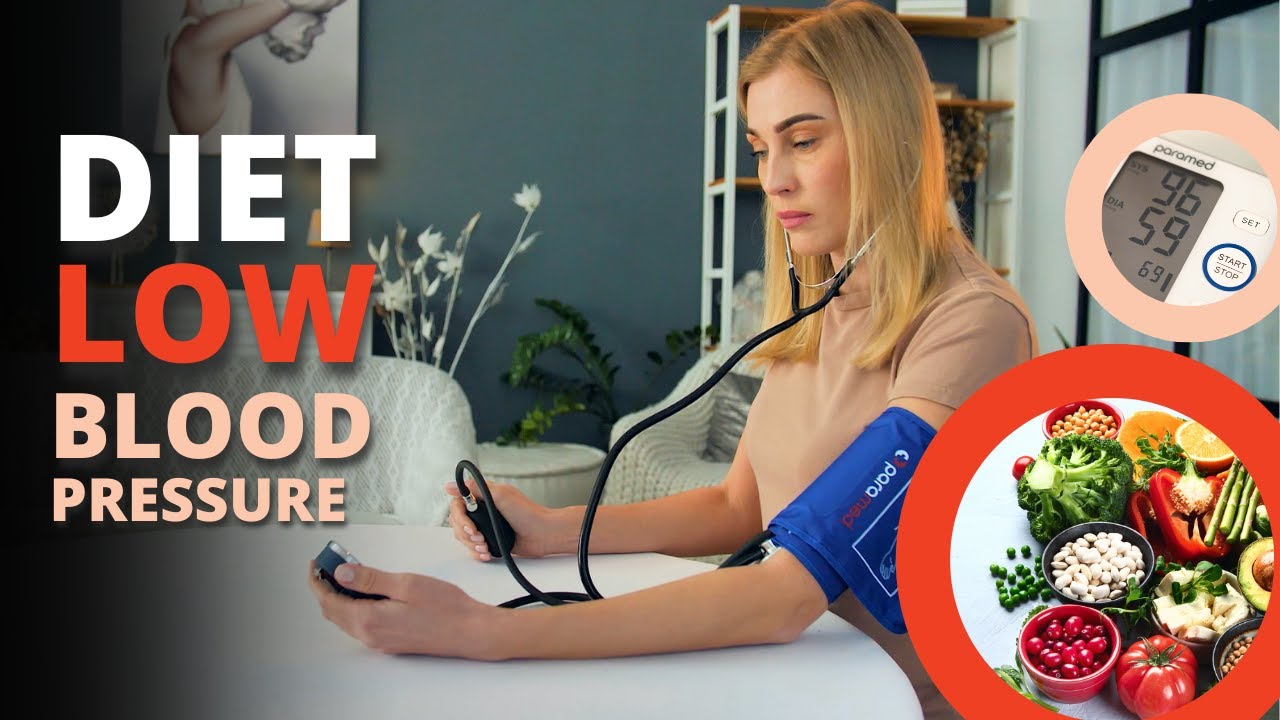We discuss what a blood pressure diet entails, including the foods that should be included and avoided. We also explore how diet can affect blood pressure levels and the numerous benefits of following a blood pressure diet, such as lowering blood pressure, reducing the risk of heart disease, and helping with weight management.
We highlight the risks of not following a blood pressure diet, including an increased risk of heart disease, stroke, and worsened kidney function.
We provide some practical tips for incorporating a blood pressure diet into your daily routine, such as reading food labels, limiting sodium intake, and incorporating more fruits and vegetables.
By the end of this article, you will have a better understanding of the importance of a blood pressure diet and how it can positively impact your overall health.
In This Article
What is High Blood Pressure?
High blood pressure, also referred to as hypertension, is a prevalent condition that impacts the cardiovascular health of individuals. It is identified by increased pressure in the arteries, which may result in various health complications.
What is a Blood Pressure Diet?
A blood pressure diet, like the DASH diet, emphasizes the consumption of nutrient-rich foods that are low in sodium and high in potassium. The diet is tailored to assist individuals in effectively managing their blood pressure levels.
What Foods Should be Included in a Blood Pressure Diet?
A blood pressure diet should include whole grains, fruits, vegetables, lean proteins, and healthy fats as they offer essential nutrients to maintain cardiovascular health and manage hypertension.
Whole grains such as brown rice, whole wheat bread, and oats are high in fiber, which aids in lowering cholesterol levels and regulating blood sugar.
Fruits like berries, oranges, and bananas contain vitamins, minerals, and antioxidants that support heart function and reduce inflammation.
Vegetables such as leafy greens, bell peppers, and broccoli provide potassium, magnesium, and antioxidants that are beneficial for blood pressure regulation.
Lean proteins like skinless poultry, fish, and legumes offer protein without the saturated fats present in red meats, promoting heart health.
Healthy fats sourced from avocados, nuts, and seeds help in reducing bad cholesterol levels and lowering the risk of heart disease.
What Foods Should be Avoided in a Blood Pressure Diet?
When adhering to a blood pressure diet, it is essential to avoid foods high in salt, unhealthy fats, processed ingredients, and sugary beverages. These items can have a negative impact on blood pressure levels and cardiovascular health.
Regularly consuming foods high in salt can result in water retention, which increases blood volume and elevates blood pressure. Unhealthy fats, like trans fats and saturated fats, may contribute to plaque accumulation in the arteries, further burdening the cardiovascular system.
Processed foods frequently contain high levels of sodium, added sugars, and unhealthy additives that can exacerbate hypertension. Sugary drinks provide empty calories, elevate blood sugar levels, and lead to weight gain, all of which can worsen blood pressure problems.
Opting for fresh, whole foods and thoughtful meal planning can significantly benefit blood pressure management.
How Does Diet Affect Blood Pressure?
Diet has a notable influence on blood pressure levels, largely due to its effect on sodium intake and salt levels within the body. Diets high in salt can place stress on the cardiovascular system and result in increased blood pressure.
What Are the Benefits of a Blood Pressure Diet?
Adhering to a blood pressure diet provides various advantages, such as enhanced heart health, efficient weight control, and improved management of blood pressure levels. It can have a positive impact on overall well-being.
1. Lowers Blood Pressure
One key benefit of a blood pressure diet is its ability to lower blood pressure levels, promoting better cardiovascular health and aiding in the management of hypertension.
By incorporating nutrient-rich foods like fruits, vegetables, whole grains, and lean proteins into daily meals, individuals can help regulate blood pressure by reducing sodium intake and increasing potassium levels. These dietary changes work synergistically to improve heart function, decrease the risk of heart disease, and support overall cardiovascular well-being.
A blood pressure diet helps in weight management, which is crucial for reducing strain on the heart and lowering blood pressure levels. Consistency in following a balanced diet can lead to long-term benefits in maintaining healthy blood pressure levels.
2. Reduces Risk of Heart Disease
Following a blood pressure diet can help individuals reduce the risk of heart disease and improve their cardiovascular health. The nutrient-rich foods in this diet are supportive of heart health.
Including foods low in sodium, such as fruits, vegetables, whole grains, and lean proteins, can assist in regulating blood pressure levels. Consumption of potassium-rich foods like bananas and sweet potatoes can further help in maintaining healthy blood pressure. Emphasizing fiber-rich foods like legumes and nuts can enhance cholesterol levels and lower the risk of heart problems.
These dietary recommendations not only promote heart health but also contribute to overall well-being and longevity.
3. Helps with Weight Management
Maintaining a diet focused on blood pressure can help individuals effectively manage their weight. Incorporating healthy fats, practicing portion control, and engaging in meal planning can support weight management goals.
Healthy fats, such as those found in avocados, nuts, and olive oil, are essential in a blood pressure diet for weight management. These fats contribute to feelings of fullness and satisfaction, which can help reduce the risk of overeating.
Portion control is another critical component as it assists in regulating calorie intake and preventing excessive consumption. Additionally, meal planning can facilitate the selection of healthier food options, deter impulsive choices that are less nutritious, and ultimately contribute to successful weight management outcomes.
What Are the Risks of Not Following a Blood Pressure Diet?
Failure to adhere to a blood pressure diet can present various risks, such as an elevated chance of heart disease, increased risk of stroke, and potential deterioration of kidney function. Adhering to dietary guidelines is crucial.
1. Increases Risk of Heart Disease
Failure to adhere to a blood pressure diet can increase the risk of heart disease as a result of the negative impacts of an unhealthy diet on the cardiovascular system. Poor dietary choices can raise susceptibility to heart disease.
A diet rich in saturated fats, trans fats, cholesterol, and sodium can lead to arterial blockages, adding strain on the heart. Excessive intake of processed foods and sugary beverages can also contribute to inflammation and plaque accumulation in the arteries, further hindering proper blood circulation.
Over time, these factors increase the likelihood of developing hypertension and other cardiovascular ailments. It is essential to prioritize nutrient-dense foods such as fruits, vegetables, whole grains, lean proteins, and healthy fats to support heart health and lower the risk of heart disease.
2. Can Lead to Stroke
A diet that does not incorporate appropriate strategies for managing blood pressure can elevate the risk of stroke. Unhealthy dietary choices have the potential to adversely affect blood pressure and overall cardiovascular well-being.
An unwholesome diet rich in sodium, saturated fats, and processed foods can result in heightened blood pressure, causing additional stress on the heart and blood vessels.
This increased stress may raise the probability of arterial plaque formation, thereby increasing the susceptibility to strokes. The additional weight gained as a result of an unhealthy diet can further worsen hypertension, establishing a perilous cycle that significantly amplifies the likelihood of experiencing a debilitating stroke.
3. Worsens Kidney Function
Failure to adhere to a blood pressure diet can have a negative impact on kidney function, especially for individuals with hypertension. Dietary choices are instrumental in the management of blood pressure and the promotion of kidney health.
High levels of sodium intake, commonly found in processed and fast foods, can raise blood pressure levels, placing additional stress on the kidneys. Insufficient intake of fruits and vegetables that are rich in potassium, fiber, and antioxidants can also impede kidney function.
Excessive alcohol consumption and dehydration are additional factors that can worsen hypertension and have adverse effects on renal health. Thus, adopting a balanced blood pressure diet is crucial for reducing the risk of kidney damage and maintaining overall well-being.
What Are Some Tips for Following a Blood Pressure Diet?
For successful adherence to a blood pressure diet, it is important to consider essential tips such as:
- Reading food labels
- Monitoring sodium intake
- Incorporating plenty of fruits and vegetables
- Reducing alcohol consumption
These strategies are supportive of blood pressure management.
1. Read Food Labels
It is important to read food labels when following a blood pressure diet as it helps in understanding the nutrient content of foods, making informed choices, and planning nutritious meals effectively.
By carefully reading food labels, individuals can identify and avoid high sodium and saturated fat products, which are detrimental to blood pressure management. This practice not only supports healthy eating habits but also enhances awareness of hidden additives and preservatives that may negatively impact cardiovascular health.
Being adept at deciphering food labels can streamline meal preparation by ensuring that the ingredients used align with dietary goals, leading to a more proactive and intentional approach to maintaining overall well-being.
2. Limit Sodium Intake
Restricting sodium intake is important for controlling blood pressure and maintaining cardiovascular health. Consuming excessive salt can lead to elevated blood pressure levels and increase the risk of heart complications.
High sodium levels in the body can cause water retention, putting additional strain on the heart and blood vessels. By reducing salt intake, individuals can help manage their blood pressure and lower the likelihood of developing hypertension. A low-sodium diet can also improve overall well-being by reducing the risk of stroke, heart disease, and other cardiovascular problems.
It is essential to monitor food labels and choose low-sodium options to encourage a healthier lifestyle and promote long-term heart health.
3. Incorporate Fruits and Vegetables
Incorporating a variety of fruits and vegetables into the diet is important for individuals following a blood pressure diet. These foods are rich in nutrients, including essential minerals, vitamins, and dietary fiber, which are beneficial for overall health. They are essential for maintaining a diverse and balanced diet and can help reduce the risk of high blood pressure.
Colorful fruits like berries, citrus fruits, and bananas, along with vegetables such as leafy greens, bell peppers, and broccoli, offer a range of antioxidants and phytochemicals that promote heart health.
Meal suggestions include mixed fruit salads, vegetable stir-fries, and smoothies containing a variety of fruits and leafy greens. These tasty options can enhance the enjoyment and sustainability of the blood pressure diet.
4. Reduce Alcohol Consumption
It is recommended for individuals following a blood pressure diet to reduce their alcohol consumption in order to promote heart health and overall well-being. Consuming alcohol in moderation can have a positive impact on managing blood pressure.
Limiting alcohol intake can assist individuals in regulating their blood pressure levels and lowering the risk of hypertension-related complications. Although alcohol is known to temporarily raise blood pressure, chronic excessive drinking can contribute to long-term hypertension issues.
Therefore, integrating moderation in alcohol consumption as part of a balanced diet and healthy lifestyle choices is essential for maintaining optimal heart health and overall well-being. This practice also supports the effective management of hypertension, enabling individuals to better control their blood pressure levels and prevent potential cardiovascular problems.







